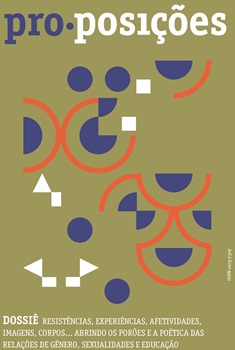Resumo
O texto aborda a homossexualidade e os direitos a ela relacionados em “Requiem sertanejo” de Rick Santos (2011), referenciando no conceito de luto de Derrida a análise desenvolvida. Propõe, assim, a ideia de que “Requiem sertanejo” emprega o luto como um processo constitutivo. O narrador do texto faz isso, ao recontar seu relacionamento com seu falecido amante, Zeca, relacionamento silenciado publicamente durante o tempo em que estiveram juntos, mas colocado a público no luto-narrativa com a morte do amante. Ao agir assim, o narrador enfrenta o legado jurídico de políticas, tais como “Don’t ask, don’t tell” e, simultaneamente, recupera os seus direitos por meio desse luto público.
Abstract
This paper employs as its theoretical framework Derrida’s model of mourning to approach homosexuality and rights in Rick Santo’s “Requiem sertanejo” (2011). This study proposes that “Requiem sertanejo”, insinuates mourning as a constitutive process. This is achieved through the texts narrator’s recounting of he and his ex-lover, Zeca’s story that during their time together was silenced publicly, but mad public in this narrative of mourning. In doing so, the narrator confronts the legal legacy of policies such as “Don’t ask, don’t tell.” At the same time, he reclaims his rights through public mourning.
Keywords: derrida, AIDS, mourning, homosexuality, rights
Referências
American Psychiatric Association (1980). Task Force on Nomenclature and Statistics, and American Psychiatric Association. Committee on Nomenclature and Statistics.
Diagnostic and Statistical Manual of Mental Disorders (3rd ed.). Washington, DC: American Psychiatric Association.
Brier, J. (2015). Reagan and AIDS. In A. Johns, A companion to Ronald Reagan (pp.
-237). Oxford: Wiley-Blackwell.
Butler, J. (2009). Frames of war: when is life grievable? New York: Verso.
Derrida, J. (1981, setembro). As mortes de Roland Barthes. Poétique, 47, 269 -291.
Derrida, J. (1995). The gift of death: religion and postmodernism. Chicago: University of Chicago Press.
Derrida, J., Brault, P.-A., & Naas, M. (2001). The work of mourning. Chicago: University of Chicago Press.
Derrida, J., & De Man, P. (1986). Mémoires: for Paul De Man. The Wellek Library Lectures at the University of California, Irvine. New York: Columbia University Press.
Foucault, M. (1978). The History of sexuality (1st American ed.). New York: Pantheon Books.
Green, J. N. (1999). Beyond carnival: male homosexuality in twentieth-century Brazil.
Chicago: University of Chicago Press.
Herek, G. M. & Capitanio, J. (1999). Aids stigma and sexual prejudice. American Behavioral Scientist 42(7), 1130-1147.
Holston, J. (2008). Insurgent citizenship: disjunctions of democracy and modernity in Brazil. Princeton: Princeton UP.
Jarman, D. (1993). Blue: text of a film. Queer Cultural Center. Retirado em 1 de maio de 2015, de http://www.queerculturalcenter.org/Pages/Jarman/JarmanBTx.html Kepner, J., & Murray, S. O. (2002). Henry Gerber: (1895-1972): grandfather of the american gay movement. In V. L. Bullough, Before Stonewall: activists for gay and lesbian rights in historical context (pp. 24-34). New York: Harrington Park Press.
Kirby, J. (2007). Remembrance of the future: Derrida on mourning. Social Semiotics 16(3), 461-472.
Santos, R. (2011). Requiem sertanejo. In C. Gonzalez, & C. Vazquez, From macho to mariposa: new gay latino fiction (pp. 177-184). Maple Shade, NJ: Tincture.
Shilts, R. (1987). And the band played on: politics, people, and the Aids epidemic.
New York: St. Martin’s Press.
United States Public Law (2015). Policy concerning homosexuality in the armed forces.
Public Law 103-160, Section 654, Title 10. U.S. Government Publishing Office, pp 340-342. Retirado em 1 de maio de 2015, de http://www.gpo.gov/fdsys/pkg/USCODE-2010-title10/pdf/USCODE-2010-title10-subtitleA-partII-chap37-sec654.pdf
A Proposições utiliza a licença do Creative Commons (CC), preservando assim, a integridade dos artigos em ambiente de acesso aberto.

